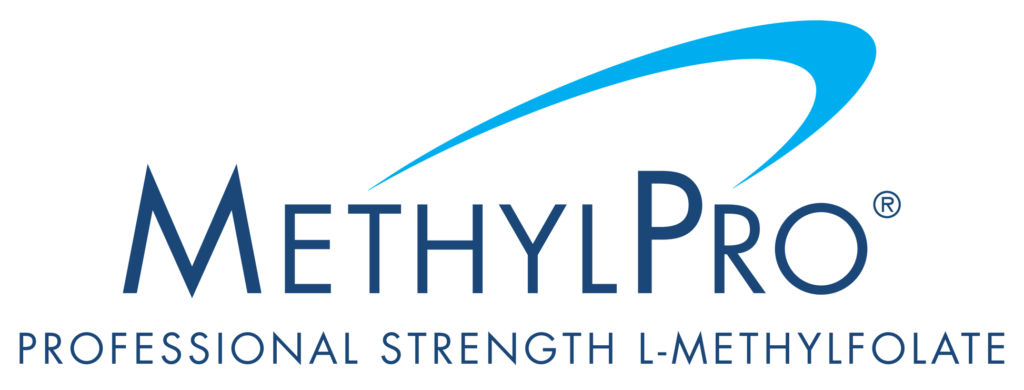MethylPro® is committed to the pursuit of holistic wellness through functional medicine. We recognize that a magnesium glycinate supplement is a powerful aid with a plethora of benefits to the mind and body, including its role in relaxation, sleep, and a balanced mood. As such, we are proud to announce the addition of Magnesium Glycinate to our catalog.
This highly absorbable form of magnesium combines the essential mineral with the amino acid glycine, enhancing its calming effects on the nervous system. In this blog post, we will explore the myriad benefits of magnesium glycinate, particularly for relaxation and mood, and discuss why it is an excellent complementary supplement for individuals already taking L-methylfolate.
The Importance of Magnesium for Holistic Health
Magnesium is a vital mineral involved in over 300 biochemical reactions in the body. It plays crucial roles in muscle and nerve function, blood sugar control, and blood pressure regulation [1]. Despite its importance, many people do not get enough magnesium through diet alone, leading to hard-to-detect insufficiencies that can affect overall health [1].
Benefits of Magnesium Glycinate for Relaxation, Sleep, and Mood
There are several options when it comes to forms of magnesium supplements. Magnesium citrate is the most widely available. While many people benefit from the laxative effect it can have on bowel motility, some with gut sensitivities are often less able to tolerate these effects. Aside from being gentler on the gut, magnesium glycinate offers additional benefits:
- Enhanced Absorption and Bioavailability: Magnesium glycinate is known for its superior absorption and bioavailability compared to other forms of magnesium [2]. This means that the body can more effectively utilize magnesium, leading to better results [2].
- Calming Effect: Glycine, the amino acid in magnesium glycinate, has been shown to have calming properties [3]. It acts as a neurotransmitter in the central nervous system, promoting relaxation and mitigating occasional anxiety [3]. This makes magnesium glycinate particularly effective for improving sleep quality and reducing feelings of stress [3,4].
- Mood Regulation: Magnesium plays a significant role in regulating neurotransmitters that are crucial for mood stabilization, such as serotonin [5]. A deficiency in magnesium can lead to mental changes like low mood and excessive worry [5,6]. Supplementing with magnesium glycinate can therefore help restore a sense of calm and improve overall mood [5].
- Muscle Relaxation: Magnesium is essential for muscle relaxation [7]. It helps to alleviate muscle cramps and tension, making it beneficial for those who experience stress as tightness in their musculoskeletal system [7]. Magnesium glycinate’s high bioavailability ensures that more of the mineral reaches the muscle tissues where it is needed.
How Magnesium Glycinate Supplements Complement L-Methylfolate
For individuals already taking L-methylfolate supplements, adding magnesium glycinate to their regimen can offer complementary benefits:
- Supporting Methylation: L-methylfolate is the bioactive form of folate that directly participates in the methylation process, a crucial biochemical pathway for DNA synthesis and repair, neurotransmitter production, and detoxification [8]. Magnesium is a cofactor in many enzymatic reactions involved in methylation, enhancing the overall efficiency of this process [9].
- Enhanced Neurological Health: Both magnesium and L-methylfolate contribute to optimal neurological function. While L-methylfolate supports the production of neurotransmitters such as serotonin and dopamine, magnesium helps regulate these neurotransmitters, promoting balanced mood and calm [10].
- Stress Reduction and Sleep Quality: The calming effects of magnesium glycinate can complement the mood supportive effects of L-methylfolate. Together, they can provide a comprehensive approach to managing stress and improving sleep quality, which are often interconnected with mental health and overall well-being [11,12].
- Addressing Nutrient Interactions: Magnesium is essential for the proper function of many enzymes that metabolize folate. Ensuring adequate magnesium levels can help maximize the benefits of L-methylfolate supplements, leading to better health outcomes [13].
How to Incorporate Magnesium Glycinate into Your Routine
To experience the benefits of magnesium glycinate, consider the following tips:
- Dosage: The recommended dosage of magnesium glycinate varies depending on individual needs. Our Magnesium Glycinate capsules each contain 125 mg of magnesium, but it’s best to consult with a healthcare provider to determine the right number of capsules you should take each day.
- Timing: Magnesium glycinate can be taken at any time of the day, but many people prefer taking it in the evening due to its calming effects, which can help promote better sleep.
- Consistency: For best results, take magnesium glycinate consistently. It may take several weeks to notice the full benefits, so patience and regular supplementation are key.
Final Thoughts
Magnesium glycinate is a highly effective supplement for promoting relaxation and mood balance. Its high bioavailability and calming properties make it an excellent choice for those seeking to enhance their mental and physical well-being. When combined with L-methylfolate supplements, magnesium glycinate can provide complementary benefits, supporting overall neurological health and enhancing the methylation process. Always consult with a healthcare provider before adding any new supplement to your regimen to ensure it aligns with your individual health needs.
By incorporating magnesium glycinate into your wellness routine, you can take proactive steps towards achieving a more relaxed, balanced, and healthier life.
References
- https://www.mdpi.com/2072-6643/13/4/1136
- https://www.ahajournals.org/doi/abs/10.1161/hyp.76.suppl_1.P161
- https://link.springer.com/chapter/10.1007/978-3-031-07897-2_6
- https://www.ochsnerjournal.org/content/ochjnl/18/1/81.full.pdf
- https://journals.lww.com/jfmpc/fulltext/2022/12000/Investigating_the_effect_of_magnesium_supplement.38.aspx
- https://europepmc.org/article/NBK/nbk507265
- https://translational-medicine.biomedcentral.com/articles/10.1186/s12967-024-05434-x
- https://www.cambridge.org/core/journals/cns-spectrums/article/good-better-best-clinical-scenarios-for-the-use-of-lmethylfolate-in-patients-with-mdd/732A84D8B7A05A6F2B26E23BF4487C57
- https://www.sciencedirect.com/science/article/pii/S0899900721002021
- https://biomedpharmajournal.org/vol16no1/magnesium-and-zinc-in-bipolar-disorders/
- https://www.mdpi.com/2072-6643/12/12/3672
- https://www.sciencedirect.com/science/article/abs/pii/S0165032724007183
- https://iris.uniroma1.it/handle/11573/1671621

